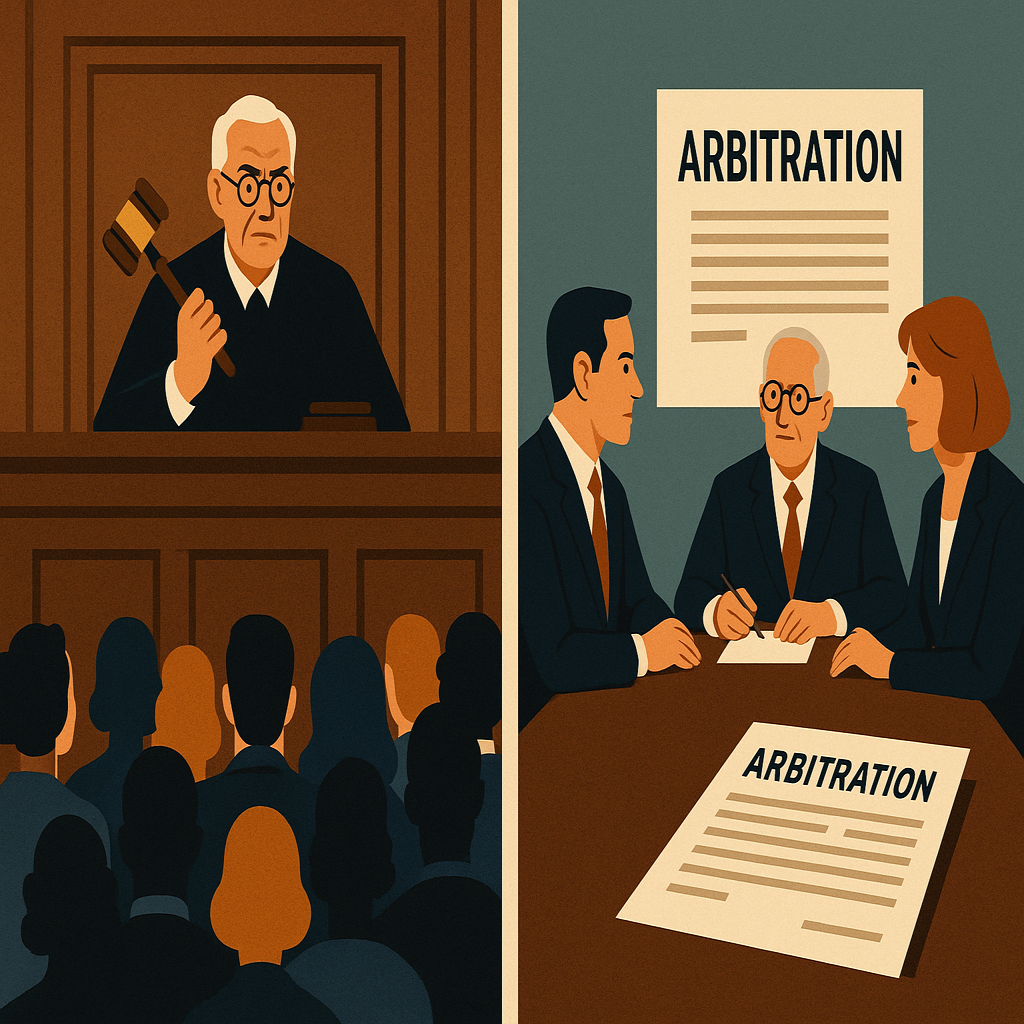Insights < BACK TO ALL INSIGHTS
The SEC Signs on to Arbitration
The SEC Signs on to Arbitration
By: George Calhoun
Early last week, on September 17, 2025, the SEC announced that it will no longer consider the presence of a mandatory arbitration provision in a company’s charter or bylaws when deciding whether to accelerate the effectiveness of a registration statement. This policy shift will permit companies to include arbitration clauses in their governing documents to require securities litigants (including class action plaintiffs) to pursue their claims in arbitration proceedings rather than court cases. The decision leaves open how arbitration provisions might apply in direct actions versus derivative actions. Nonetheless, this could result in a significant reduction in private securities litigation.
The SEC focused its decision on the recent trend in U.S. Supreme Court precedent concerning the Federal Arbitration Act and concluded that the federal securities statutes do not override the FAA’s policy of favoring arbitration. The SEC also highlighted a Delaware corporate law change that can be interpreted to forbid mandatory arbitration provisions in corporate documents.[1] Indeed, the SEC itself historically opposed the inclusion of arbitration clauses in companies’ constituent documents and registration statements, finding their use to be: (a) contrary to the public interest, and (b) potentially contrary to the securities laws’ anti-waiver provisions.[2] Notably, the SEC examined case law on the anti-waiver provisions of the Securities Act and Exchange Act and concluded that arbitration provisions limiting the ability to proceed in a judicial forum would not violate the anti-waiver provisions and that nothing in the federal securities statutes shows a congressional intention that the FAA would not apply to federal securities law claims.
The SEC’s new policy statement retreats from this position and harmonizes the SEC’s analysis with the applicability of the Federal Arbitration Act. Instead of policing arbitration language, agency decisions concerning registration statements will now focus on the statutory criteria of whether the statement is complete and provides adequate disclosure of material information to the public. This opens the door for inclusion of arbitration decisions because rapid effectiveness of a company’s registration is often important for funding and market timing reasons.
Arbitration and class action waiver provisions are important tools for companies to limit liability. We would expect that most new companies will seek to include arbitration provisions in their constituent documents. And because Delaware appears to be moving to limit such provisions at the same time that the SEC is relaxing its views, we expect that fewer companies will be choosing to incorporate in more business-friendly jurisdictions.[3]
Arbitration is not without risk. Arbitration provisions are not typically appealable and arbitration costs can be prohibitive, especially where a large group of plaintiffs initiates arbitration at the same, greatly multiplying arbitration and arbitrator costs. Moreover, the majority of securities claims are already discussed in state and federal courts. It may turn out that there is no practical advantage to the arbitral forum.
In many cases, inclusion of arbitration provisions in the constituent documents will aid companies in compelling arbitration of both direct and derivative shareholder actions and maximize the likelihood that class action waivers are enforced. Derivative actions are brought in the company’s name by individuals acting on behalf of a company. As such, having the company bound by an arbitration provision enables such claims to be compelled to arbitration.
Although it opined that the anti-waiver provisions of the securities law did not preempt the FAA, the issue of whether the anti-waiver provisions will bar arbitration of certain disputes or whether state law might bar enforcement of an arbitration provision will ultimately be resolved in future litigation. Companies are now free, however, to test those issues without fear that the SEC itself will cripple their IPO or other corporate action before it can take effect.
[1] See 8 DEL. CODE ANN. Tit. 8, Section 115(c) (2025) (effective Aug. 1, 2025). As the SEC discussed, that provision requires that securities litigants must have access to at least one court to resolve securities disputes.
[2] 15 U.S.C. 77n is the anti-waiver provision in the Securities Act (“section 14”). It provides: “Any condition, stipulation, or provision binding any person acquiring any security to waive compliance with any provision of this title or of the rules and regulations of the Commission shall be void.” 15 U.S.C. 78cc(a) is the anti-waiver provision in the Exchange Act (“section 29(a)”), which provides (“Any condition, stipulation, or provision binding any person to waive compliance with any provision of this title or any rule or regulation thereunder, or any rule of a self-regulatory organization, shall be void.”
[3] Delaware was long known as the favored state for incorporation due to its business-friendly reputation. It is more than fair to say that it has lost much of that reputation, and this issue may be the nail in that coffin.





